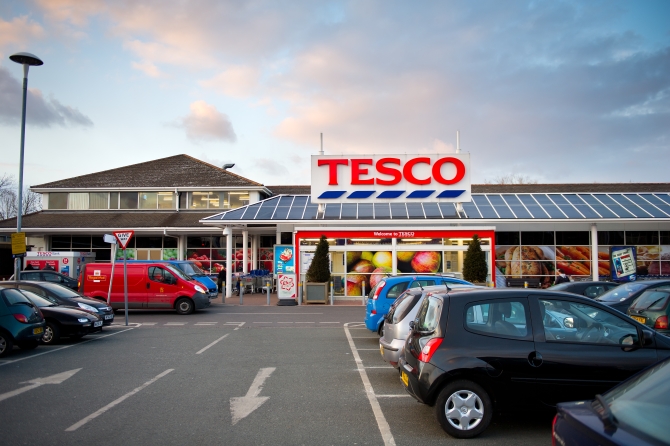Only a few months ago, it seemed that Tesco had fallen to an irreversible low – its high profile financial scandal, teamed with many consecutive months of falling sales and a steadily ebbing market share, led many market analysts to wonder whether the UK’s largest supermarket group would ever be able to recover. However, according to new industry figures, Tesco is now undeniably on the up, having resoundingly defeated its three major rivals to become the best performer out of the “Big Four” for the first time in several years.

During the 12 weeks to the 1st of March, Tesco managed to grow sales by 1.1 per cent, marking the strongest performance seen in 18 months for the struggling supermarket brand. Conversely, previous Big Four champion Asda noted a drop in sales of 2.1 per cent for the same period, effectively turning the market on its head in a shock result.
The research, conducted by Kantar Worldpanel, was resoundingly optimistic yet still showed members of the Big Four to be losing market share despite Tesco’s budding recovery. At Tesco, market share fell from 28.8 per cent at this time last year to 28.7 per cent, again resoundingly beating Asda which saw a year on year plunge from 17.5 per cent to 17 per cent.
Head of retail and consumer insight at Kantar Worldpanel, Fraser McKevitt, believes that this latest news may provide some hope for Tesco, although he was careful to note the brand is not yet out of the woods.
He continues; “Among the big four supermarkets Tesco has been the standout retailer. It has posted its strongest performance in 18 months with sales up 1.1 per cent compared with a difficult 2014.
“Increasing sales have helped Tesco arrest its falling market share, which is down just 0.1 percentage points compared with last year – this resurgence has impacted Asda which competes for many of the same shoppers as Tesco.”
It was not only Tesco which saw an improvement in conditions, as the grocery market as a whole noted consumers upped spending by 1.1 per cent when compared to the previous year. This may not sound like a lot, but given that price deflation has plummeted to a record low of 1.6 per cent thanks to falling commodity prices and the ongoing price war, it is one of the most positive results seen in the post-recession era.
Of course, discounters remain at the top of the table in terms of sales, with Aldi experiencing a 19.3 per cent sales leap and Lidl following closely behind with growth of 13.6 per cent. However, it is worth noting that this was the slowest growth seen at Aldi since June 2011, indicating that consumers may slowly be turning back to traditional retailers as their spending power increases.
Mr McKevitt concludes; “A combination of lower general inflation and the grocery price war has saved shoppers £400 million in the past 12 weeks, with deflation driven to a record low of -1.6 per cent.
“Retailers are focusing their efforts on simple price cuts rather than complicated ‘multibuy’ deals.”